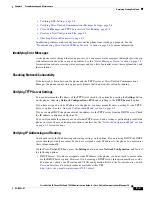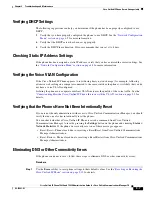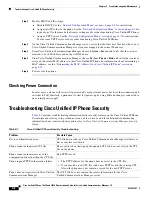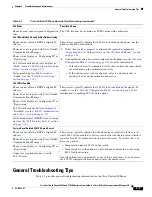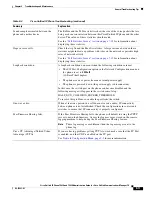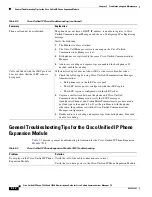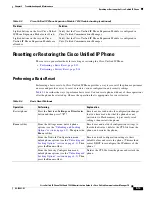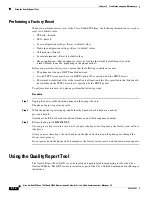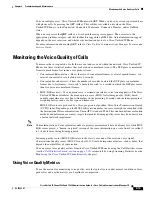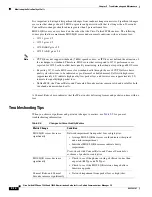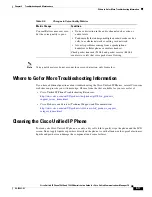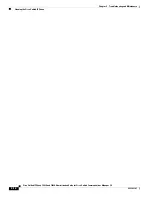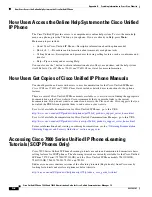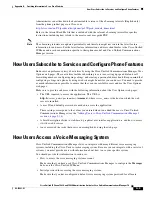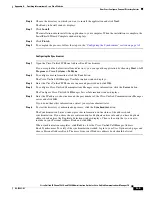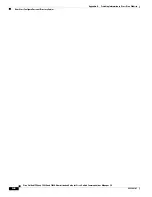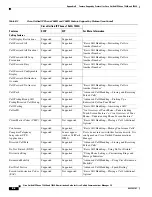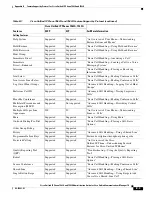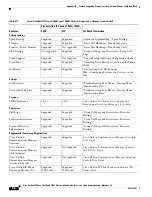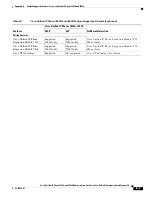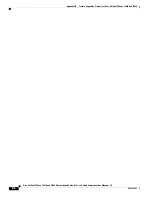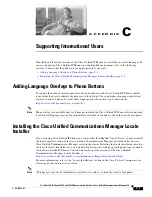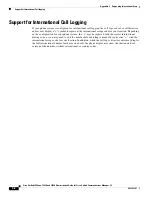
9-17
Cisco Unified IP Phone 7962G and 7942G Administration Guide for Cisco Unified Communications Manager 7.0
OL-15483-01
Chapter 9 Troubleshooting and Maintenance
Where to Go for More Troubleshooting Information
Note
Voice quality metrics do not account for noise or distortion, only frame loss.
Where to Go for More Troubleshooting Information
If you have additional questions about troubleshooting the Cisco Unified IP Phones, several Cisco.com
web sites can provide you with more tips. Choose from the sites available for your access level.
•
Cisco Unified IP Phone Troubleshooting Resources:
http://www.cisco.com/en/US/products/hw/phones/ps379/tsd_products_
support_series_home.html
•
Cisco Products and Services (Technical Support and Documentation):
http://www.cisco.com/en/US/products/sw/voicesw/tsd_products_support_
category_home.html
Cleaning the Cisco Unified IP Phone
To clean your Cisco Unified IP phone, use only a dry soft cloth to gently wipe the phone and the LCD
screen. Do not apply liquids or powders directly on the phone. As with all non-weather-proof electronics,
liquids and powders can damage the components and cause failures.
Conceal Ratio is near or at zero,
but the voice quality is poor.
•
Noise or distortion in the audio channel such as echo or
audio levels.
•
Tandem calls that undergo multiple encode/decode such as
calls to a cellular network or calling card network.
•
Acoustic problems coming from a speakerphone,
handsfree cellular phone or wireless headset.
Check packet transmit (TxCnt) and packet receive (RxCnt)
counters to verify that voice packets are flowing.
Table 9-5
Changes to Voice Quality Metrics
Metric Change
Condition

